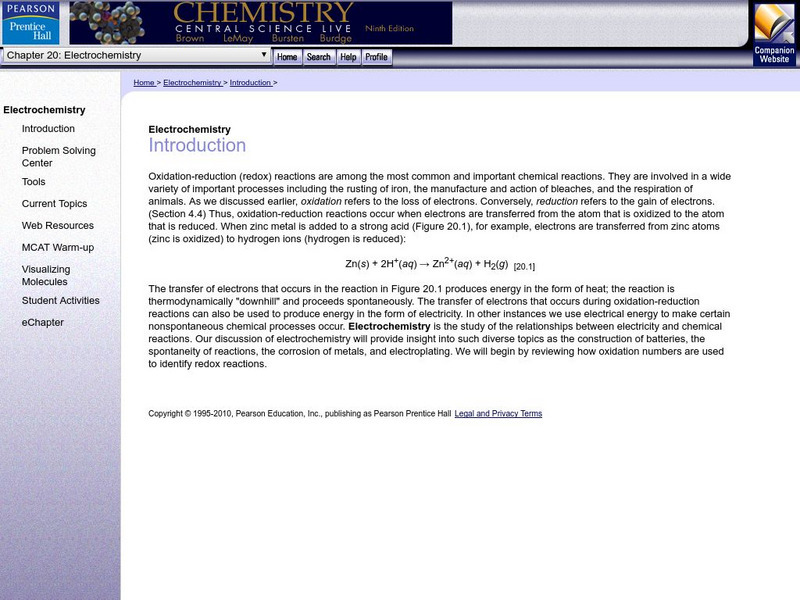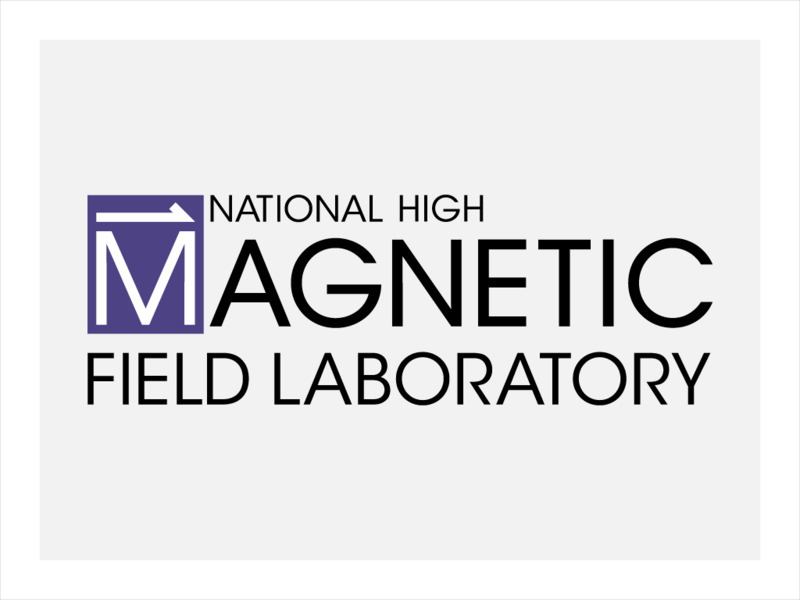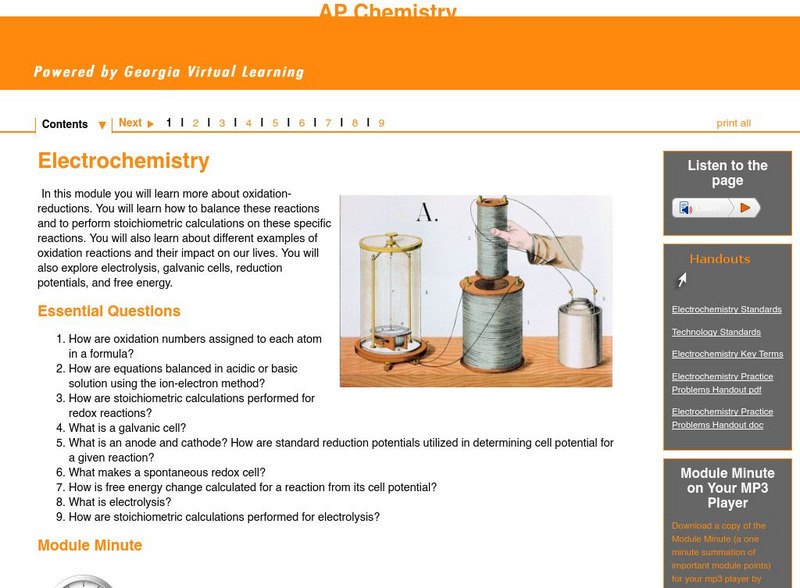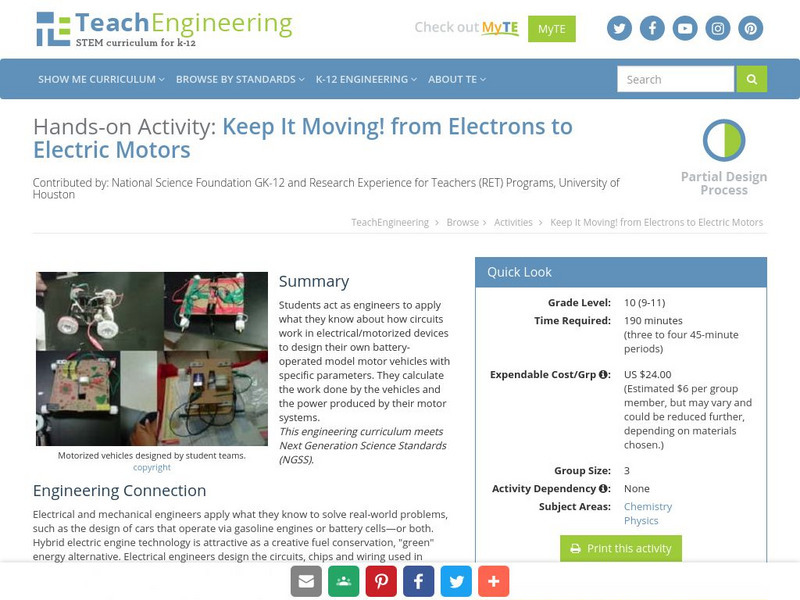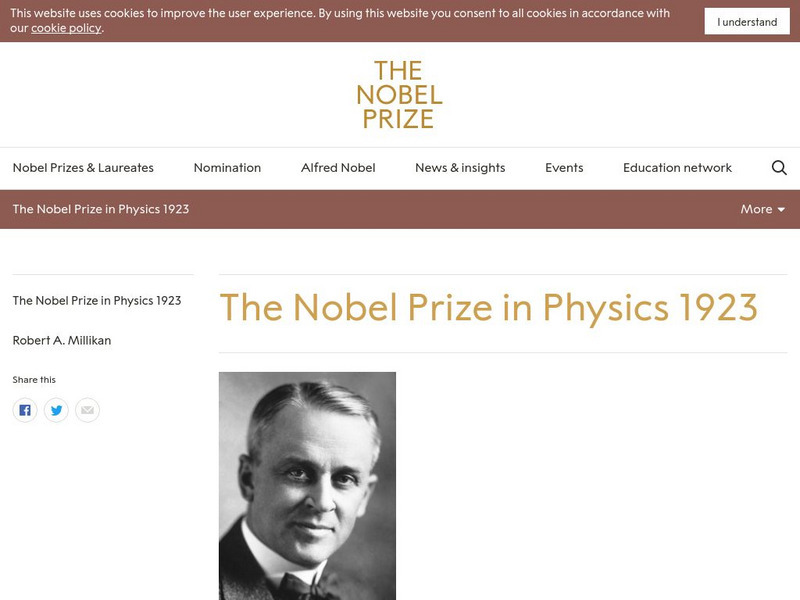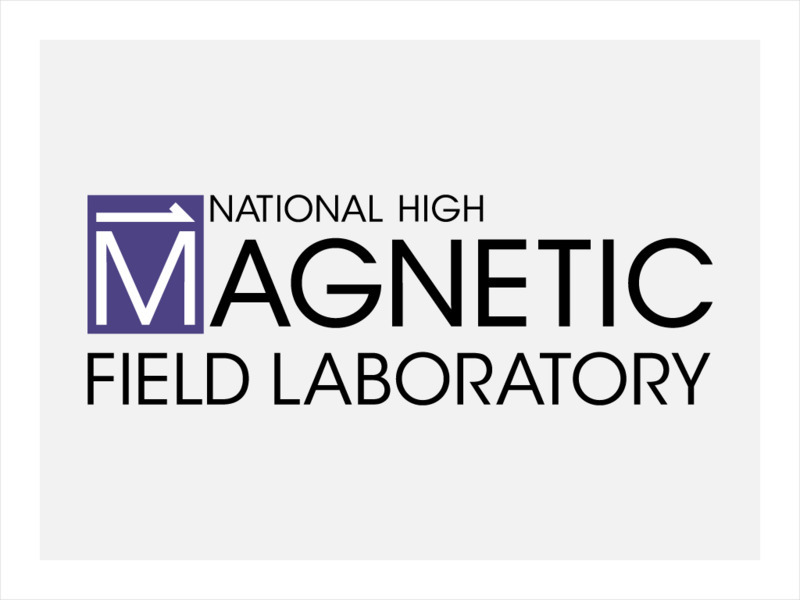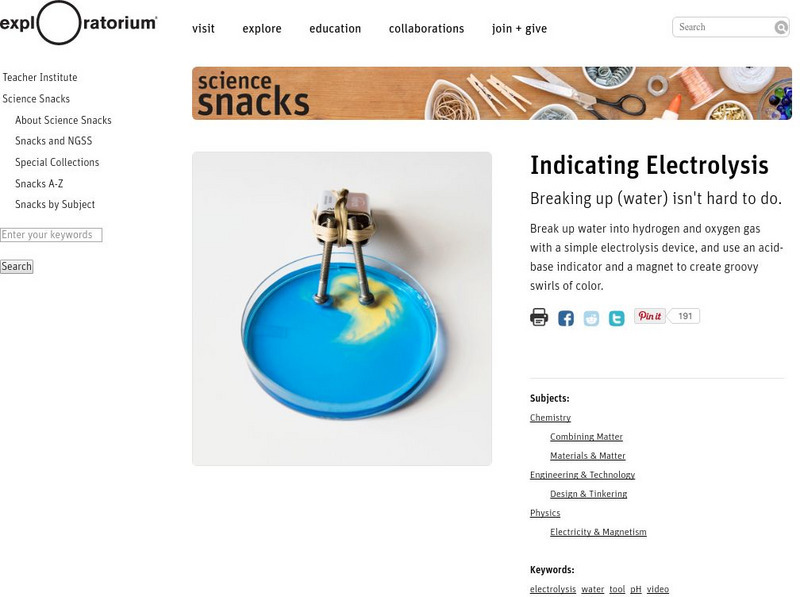Curated OER
Fueling the Future -- Electrolysis
Eighth graders work together to demonstrate the electrolysis of water. They record their observations and discuss them at the end of the experiment. They examine the connection between fuel cells and electrolysis as well.
Savvas Learning
Chemistry, the Central Science: Electrolysis
This online companion to "Chemistry - The Central Science," a textbook by Prentice-Hall, provides a good introduction to electrolytic cells and electrolysis of aqueous solutions. Practice exercises are also included.
Science Buddies
Science Buddies: Project Ideas: Salt Bridge: Electricity Changes P H
This chemistry science fair project uses a very simple experimental setup - a battery hooked up to two solutions, connected by a salt bridge - to explore some complex chemistry. The Science Buddies project ideas are set up consistently...
University of Minnesota
University of Minnesota: Ships: Science & Religion of Michael Faraday
Here's a whole different look at Faraday. His religion, Sandemanian, greatly influenced both his life and his science. This article looks deeply at that aspect of his life.
National High Magnetic Field Laboratory
Magnet Academy: Svante Arrhenius
Svante Arrhenius was born in Vik, Sweden, and became the first native of that country to win the Nobel Prize. The award for chemistry was bestowed to him in honor of his theory of electrolytic dissociation. Arrhenius also developed the...
CK-12 Foundation
Ck 12: Electrolysis
[Free Registration/Login may be required to access all resource tools.] Students investigate voltaic and electrolytic cells describing the reactions that occur during the electrolysis of water. They also identify the products that would...
Georgia Department of Education
Ga Virtual Learning: Ap Chemistry: Electrochemistry
In this module students learn more about oxidation-reductions and how to balance these reactions and perform stoichiometric calculations on these specific reactions. Students also explore electrolysis, galvanic cells, reduction...
TeachEngineering
Teach Engineering: Keep It Moving! From Electrons to Electric Motors
Students act as engineers to apply what they know about how circuits work in electrical/motorized devices to design their own battery-operated model motor vehicles with specific paramaters. They calculate the work done by the vehicles...
Nobel Media AB
The Nobel Prize: The Nobel Prize in Physics 1923: Robert Andrews Millikan
This Nobel website on the life and scientific work of Robert A. Millikan includes a biography, images, and internet resources for further reading and research. Also included are the 1923 "Presentation Speech" which praised Millikan's...
Simon Fraser University
Chem1 Virtual Textbook: Electrolytic Cells and Electrolysis
As part of the General Chemistry Virtual Textbook, this site examines a variety of topics related to electrochemistry. In a discussion of electrolysis, this site covers topics including electrolysis in aqueous solutions, Faraday's laws...
BBC
Bbc: Gcse Bitesize: Electrolysis
Copper can be extracted from its ore by heating it with carbon. Impure copper is purified by electrolysis in which the anode is impure copper, the cathode is pure copper and the electrolyte is copper sulfate solution. It provides links...
American Chemical Society
Middle School Chemistry: Energy Levels, Electrons, and Covalent Bonding
Students discover the concept that two atoms can attract and form a covalent bond.
Texas Instruments
Texas Instruments: Electrolysis of Water
Students will learn to write the half reactions that occur at each electrode during the electrolysis of water, performed in microscale using a 9V battery as a power source. In monitoring the pH at each electrode, studens will learn that...
Simon Fraser University
Chem1 Virtual Textbook: All About Electrochemistry
The eight pages in this section of the Chem1 Virtual Textbook cover elementary electrochemistry at a level suitable for first-year college and advanced high school courses.
National High Magnetic Field Laboratory
Magnet Academy: Humphry Davy
Humphry Davy was a pioneer in the field of electrochemistry who used electrolysis to isolate many elements from the compounds in which they occur naturally. Electrolysis is the process by which an electrolyte is altered or decomposed via...
National High Magnetic Field Laboratory
Magnet Academy: Timeline of Electricity and Magnetism: 1800 1819
Alessandro Volta invents the first primitive battery, discovering that electricity can be generated through chemical processes; scientists quickly seize on the new tool to invent electric lighting. Meanwhile, a profound insight into the...
Exploratorium
Exploratorium: Science Snacks: Indicating Electrolysis
This experiment and video demonstration shows how students can break up water into hydrogen and oxygen gas with a simple electrolysis device.
American Chemical Society
Middle School Chemistry: Energy Levels, Electrons, and Covalent Bonding
Discover how covalent molecular bonding affects the energy levels of electrons.
Simon Fraser University
Chem1 Virtual Textbook: Electrolysis in Aqueous Solutions
As part of the General Chemistry Virtual Textbook, this site examines a variety of topics related to electrochemistry. In discussing electrolysis, this site focuses on electrolysis in relation to aqueous solutions.
BBC
Bbc: Gcse Bitesize: Electrolysis
This lesson focuses on Electrolysis, the decomposition of a liquid using electricity. When ionic compounds are molten or dissolved in water the ions are free to move. It offers links to a video and a test.
BBC
Bbc: Gcse Bitesize: Electrolysis Aqa
This lesson focuses on Electrolysis, the process by which ionic substances are broken down into simpler substances using electricity. During electrolysis, metals and gases may form at the electrodes. Links are provided to a video and a...
Concord Consortium
Concord Consortium: Where Does All the Energy in an Explosion Come From?
In this module Activity 3 investigates What changes in energy occur when atoms rearrange during a chemical reaction? This activity explores the relationship between energy and chemical reactions. A bonus reading includes Energy and...
Concord Consortium
Concord Consortium: How Can a Small Spark Start a Huge Explosion?
In this Activity 1 investigates What makes materials different from each other? Students will continue to learn about energy and to investigate how energy changes relate to changes in matter. Students will also explore what makes...
Concord Consortium
Concord Consortium: What Happens to the Energy of Water Molecules During Hurricanes?
Activity 2 investigates How Hot Can Water Get? In Activity 2 students analyze the relationship between energy changes and phrase changes as they discuss what happens when water boils. Bonus reading includes Why is Temperature Constant...



